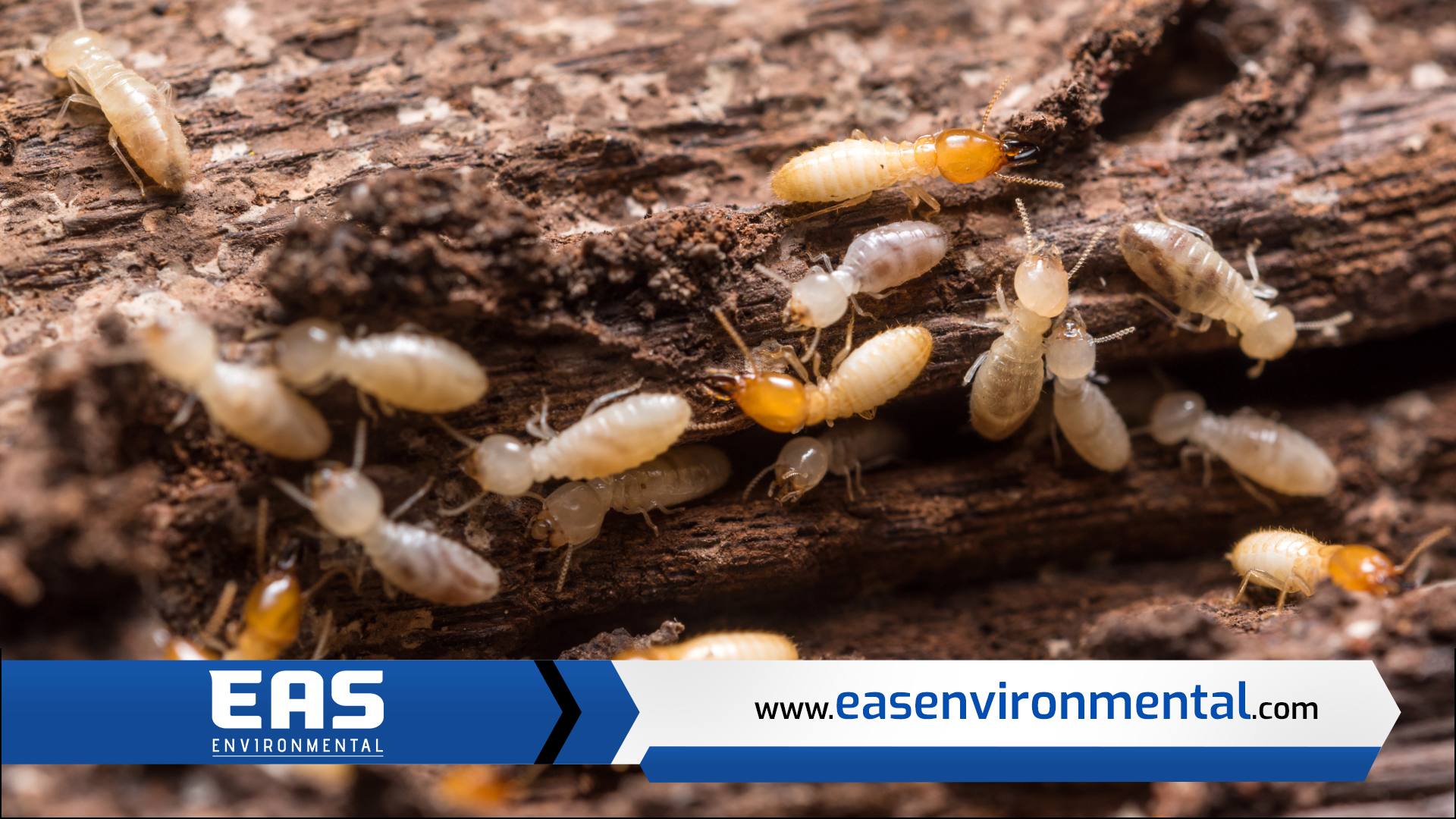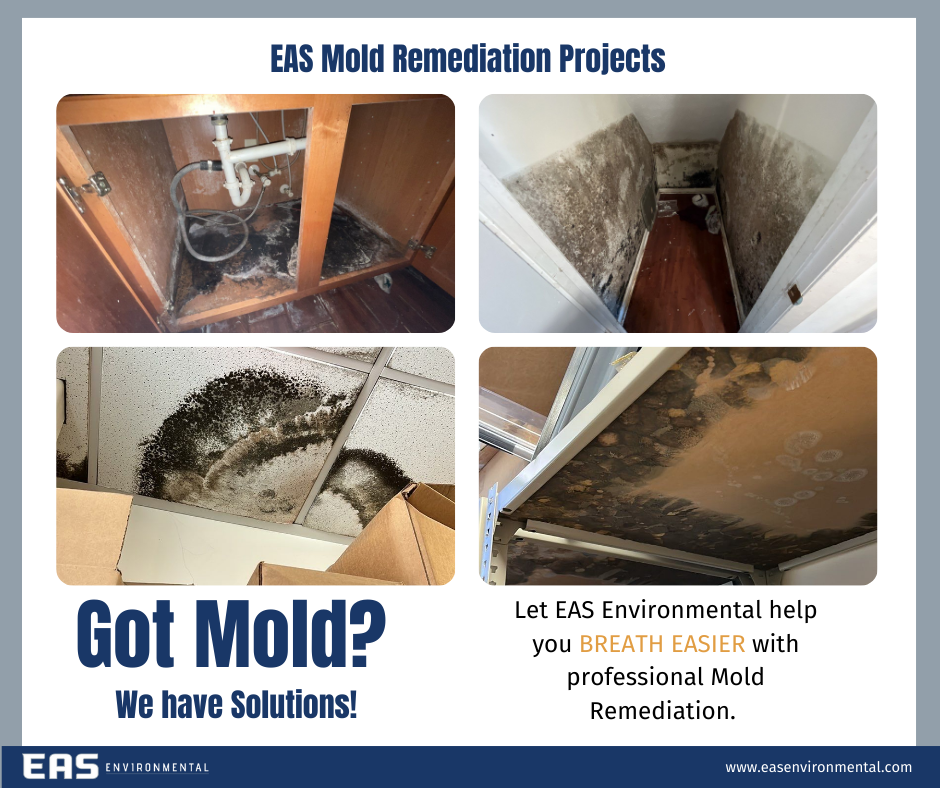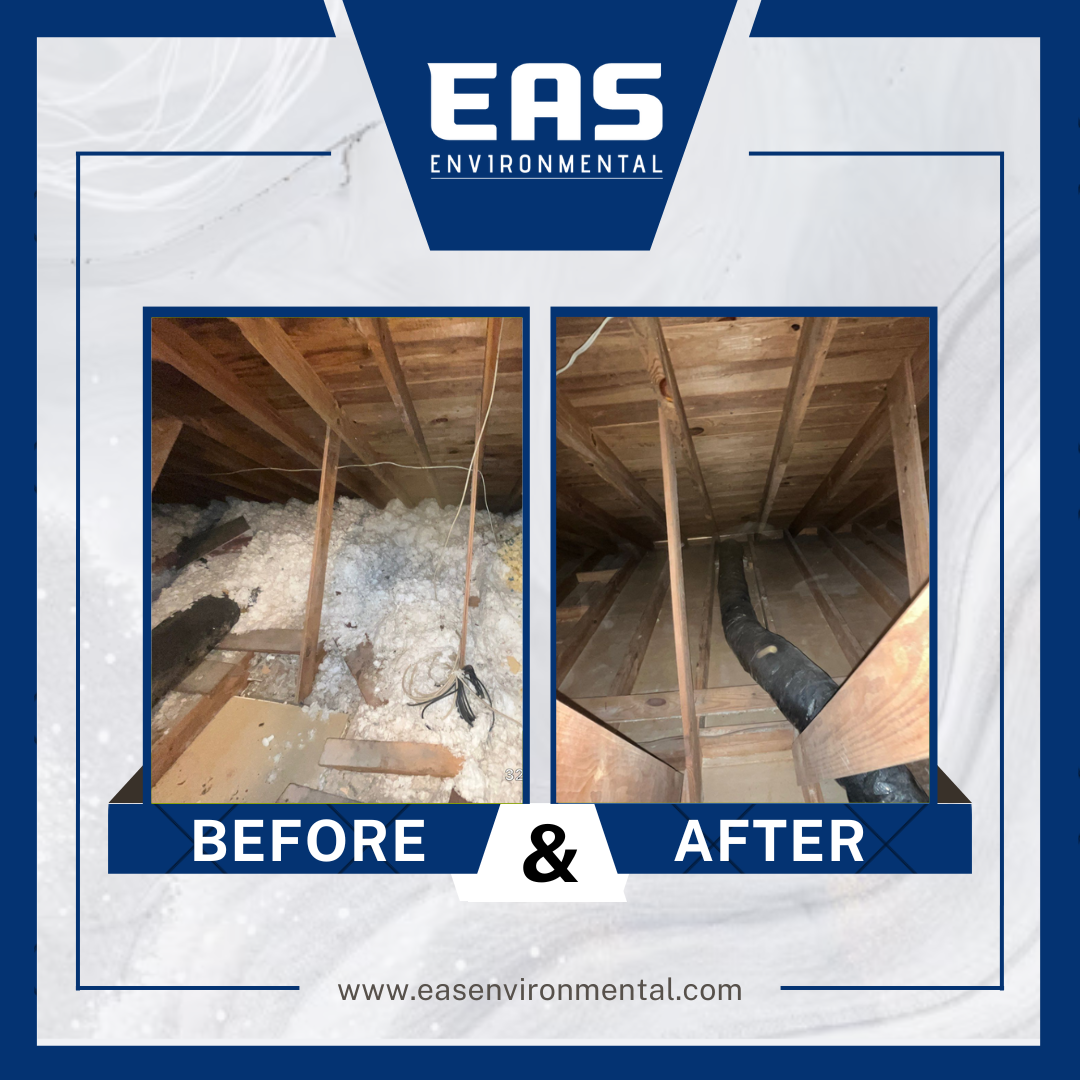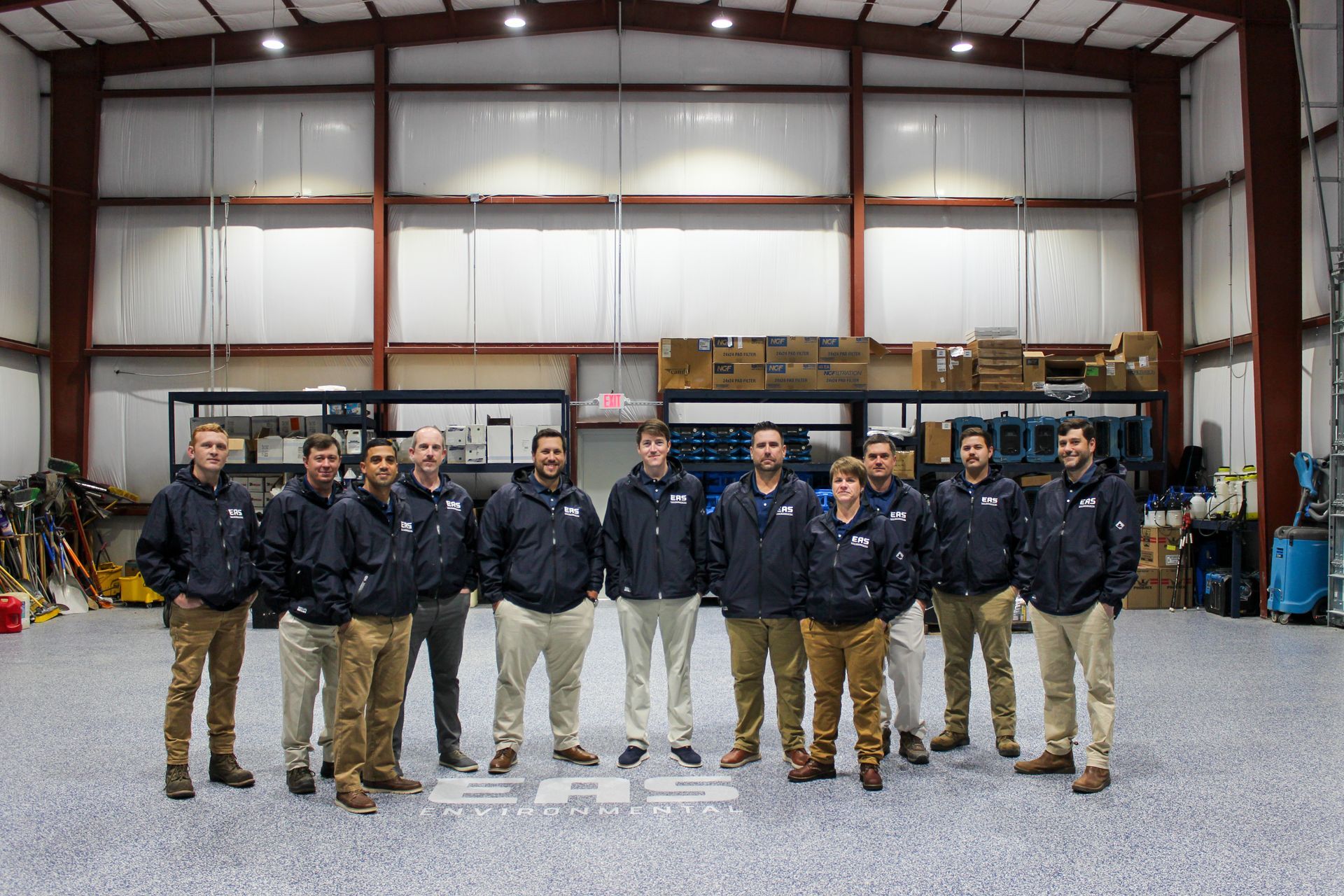
Termites can cause a lot of damage to your home. And, with the summer months upon us, you can bet that these little buggers will be out in full force. But don’t worry—we’ve got you covered! In this blog post, we’ll provide you with 10 warning signs of termite damage that could indicate an infestation. Read on to find out what they are!
What are the 10 warning signs of termite damage in your home?
- Discarded wings – If you see piles of small, discarded wings around your windows or doorways, it could be a sign of a termite infestation. The wings are left behind after the swarmers have found and established a new home for themselves.
- Mud tubes – Termites build mud tubes as a way to travel between their nests and the food sources they feed on—namely, your woodwork and furniture items! Keep an eye out for these mud tubes along baseboards or window sills.
- Damaged wood – Termites eat away at wood from the inside out, leaving behind hollowed-out galleries as evidence of their activity. To check for any potential damage, tap on walls or furniture and listen for a hollow sound that indicates weakened structural integrity due to termite feeding activity.
- Cracked paint – When termites attack wooden structures such as walls or flooring, they can cause paint to crack or chip off in large chunks due to the weakening of those structures from their constant feeding activity over time.
- Discolored wood – One telltale sign of termite damage is discolored wood that appears darker than its surroundings due to moisture retention caused by extended feeding activity over time.
- Swarms of insects – In the springtime, swarms of winged insects may appear near windows or doorways—this could indicate an existing termite nest nearby!
- Uneven floors – If your floors start buckling or feel spongy when walking on it could be due to weakened floor joists caused by underlying termite activity over time—this can be dangerous so make sure you get it checked out right away if you suspect any issues!
- Dry wood Termite Droppings – Look for piles of small pellets near windowsills or baseboards—these droppings are evidence that dry wood termites may have taken up residence in your home!
- Foul odors – If there’s an unpleasant smell coming from certain parts of your house (especially near window sills and baseboards), it could indicate an active termite infestation nearby!
- Noises – The last sign that something might not be quite right with your home is strange noises coming from within the walls—termites munching away at the wood beams inside could be making these sounds so make sure you investigate further if anything seems amiss!
What kind of damage can termites do to your home?
The Dangers of Subterranean Termites
The most common type of termite found in homes across the United States is the subterranean termite. These pesky buggers are attracted by dampness and warmth and they love munching away at any exposed wood that they come across—which means they love homes! Subterranean termites can cause major structural damage if they infest a building and go undetected for long enough. They will chew through walls, floors, furniture, and even electrical wiring, creating a huge safety hazard in addition to costly repairs.
When you consider that most homeowners insurance policies won't cover damage caused by pests like termites, it's easy to see why preventing an infestation should be a top priority for any homeowner. Regular inspections are key; look out for signs like mud tubes or discarded wings that may indicate a colony nearby. If you find evidence of an infestation, contact a pest control specialist immediately before the situation gets out of hand!
What are the most common places for termites to attack in your home?
The most common places for termites to build their nests are areas with direct access to wood, such as floors and walls. They will also take up residence in door frames, window sills, and baseboards. Other areas they may inhabit include wood furniture, bookshelves, and even wooden toys.
In addition to these areas in your home itself, termites can also be found outside near your house or yard. Exterior wood structures such as decks and fences are prime breeding grounds for them since these structures provide a constant source of food – namely wood! If you have any rotting logs or stumps in your yard, those are also places where termites are likely to be lurking. As if that weren’t enough to contend with already, don’t forget about the underground tunnels that they build under concrete or asphalt driveways or patios!
What are the most effective methods for getting rid of termites?
Trying to take care of a termite infestation on your own may seem like a good idea; however, it’s often not as effective as hiring an experienced professional. Not only do professionals know exactly what type of treatment your property needs but they also have access to specialized tools and equipment that are necessary for proper termite removal. Additionally, professionals have years of experience dealing with these pests and understand exactly how to eliminate them from your home or business quickly and efficiently.
When it comes time to choose between DIY termite removal or hiring a pro, keep in mind that if you try taking care of the problem yourself and are unsuccessful in eliminating all the pests, you could end up spending much more money in the long run on pest control services or repairs for further damage caused by the infestation.
How can you find a reputable company to help you with termite damage in your home?
When you think of home improvement projects, termite control isn't usually the first thing that comes to mind. But when you find yourself in need of termite damage repair, it's important to make sure you find a reputable company to take on the job. After all, these little critters can do some serious damage if left unchecked!
Do Your Research - The most important thing you can do when looking for a company to help with your termite problem is to do your research. Look online for reviews of companies in your area and read customer testimonials. This will give you an idea of what kind of service they provide and if they're worth considering. You should also ask around friends, family members, and neighbors who have had similar issues with their homes.
Check Credentials - Once you've narrowed down your list of potential companies, make sure that they hold the proper credentials and certifications. These serve as proof that the company is qualified and knowledgeable about pest control practices and techniques. This will show that they take their business seriously and strive to stay up-to-date on industry standards and regulations.
Ask Questions - Before signing any contracts or hiring anyone for work in your home, be sure to ask questions about their experience with termite control. Find out how long they've been in business, what type of products or services they offer, how much experience they have in dealing with this particular issue, etc. It's also important to inquire about their safety policy – make sure that all technicians are properly trained and certified before allowing them into your home!
What can you do to prevent termites from damaging your home?
It’s every homeowner's nightmare: you look around your house and find that the walls, furniture, and flooring have been destroyed by termites. All of your hard work and money spent on building a home may now be gone in an instant. But fear not! By taking a few simple preventative measures, you can protect your home from termite damage and keep those pesky wooden munchers away.
Inspect Your Property Regularly
The best way to prevent termite damage is to act before it happens. The easiest way to do this is by making regular inspections of your property for any signs of infestation. Look for wood-destroying insects or their droppings, mud tubes on walls or foundations, or discarded wings near windowsills or doors—all of these are telltale signs of a potential problem. If you spot anything suspicious, call an exterminator right away to get rid of the issue before it becomes a major problem.
Keep Moisture Away From Your Home
Termites need moisture to survive, so if you can keep them from getting access to water sources like broken pipes or leaks in the roof, they won’t stick around for very long. Make sure all plumbing is well-maintained and that all gutters and drains are clear of debris so that water can flow freely away from the house. Also, make sure that any shrubbery planted near the house is trimmed back so that it doesn’t provide cover for termites looking for somewhere damp to hide out.
Use Chemical Treatments
Sometimes even the best preventative measures aren’t enough; if you live in an area where termite infestations are common, it might be worth investing in chemical treatments for extra protection against unwanted invaders. There are many different kinds of treatments available depending on what kind of infestation you have, but most involve applying some sort of pesticide around the perimeter of your home as well as creating a barrier between the soil outside and any wood inside your house (like subfloors). A professional exterminator will be able to advise you on which treatment will work best for your particular situation.
Conclusion
Termites can do serious damage to homes if left unchecked which is why it's important to know what signs may point towards their presence in advance - now you know how to spot them in 10 easy steps! Be sure to inspect any suspicious areas around your home regularly and contact pest control professionals immediately if any warning signs seem present - better safe than sorry when it comes to protecting yourself from potentially costly repairs down the line! Good luck and happy hunting.
Contact EAS Environmental Today!
EAS Environmental will do everything we can to ensure your experience with us is excellent.
Request A FREE Estimate
Request a Free Estimate Form
We will get back to you as soon as possible.
Please try again later.
Checkout Recent Post



Got a Question? We’re Here to Help.
You can arrange an appointment or make an enquiry by phone or email, orget in touch to us via our contact form.
EAS Environmental is a specialty asbestos and lead abatement and demolition company that service the state of South Carolina.
CONTACT INFORMATION
Phone: 843-977-3273
Email: sturner@easenvironmental.com
Address: 125 Bud Lane Ladson, SC 29486
All Rights Reserved | EAS Environment
Privacy Policy | Terms & Conditions | Sitemap


